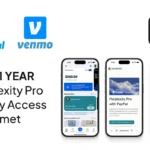Now Reading: Mobile App vs Mobile Website Marketing: The Ultimate Guide to Choosing What’s Right for Your Business
-
01
Mobile App vs Mobile Website Marketing: The Ultimate Guide to Choosing What’s Right for Your Business
Mobile App vs Mobile Website Marketing: The Ultimate Guide to Choosing What’s Right for Your Business

Understanding the mobile app vs mobile website marketing pros and cons is crucial for making informed decisions that align with your business goals, target audience, and available resources. As consumers increasingly rely on their smartphones for everything from shopping to entertainment, businesses face a critical decision: should they invest in a mobile app, optimize their website for mobile users, or pursue both strategies simultaneously?
This comprehensive guide will walk you through the key differences, advantages, and potential drawbacks of each approach, helping you develop a mobile strategy that maximizes engagement, conversions, and return on investment.
Key Takeaways
- Mobile websites are browser-based, instantly accessible without downloads, and reach a broader audience through search engines, while mobile apps are downloaded applications that offer enhanced functionality, personalization, and higher engagement rates.
- Mobile websites excel at discoverability, SEO benefits, and cost-effectiveness, while mobile apps provide superior user experience, deeper engagement, and better retention rates.
- The marketing funnels differ significantly-website marketing follows a traditional awareness-to-purchase model, while app marketing begins with conversion (the download) and focuses heavily on retention.
- Your choice should depend on your specific business goals, audience preferences, budget constraints, and whether you prioritize reach (websites) or engagement (apps).
- Many successful businesses implement both strategies, using mobile websites for discovery and apps for loyal customer engagement.
Mobile App vs Mobile Website Marketing: The Core Differences
When it comes to marketing strategies, mobile apps and mobile websites require distinctly different approaches. Let’s explore the key marketing differences between these two mobile platforms.
Marketing Funnel Variations
One of the most significant differences lies in the marketing funnel structure for each platform.
Mobile Website Marketing Funnel:
- Follows the traditional marketing funnel: awareness, interest, consideration, intent, evaluation, and purchase
- Focuses on driving traffic and converting visitors into customers
- Ends with a conversion (purchase, signup, etc.)
Mobile App Marketing Funnel:
- Begins with conversion (the app download)
- Focuses heavily on retention and engagement after download
- Takes the form of a flywheel rather than a linear funnel
- Emphasizes user retention to foster loyalty and encourage referrals
This fundamental difference means that website marketing casts a wider net to attract potential customers, while app marketing deals with higher-quality leads and focuses on keeping users engaged after they’ve downloaded the app.
Optimization Strategies: SEO vs ASO
Another crucial difference lies in how each platform is optimized for discovery:
Mobile Website Optimization (SEO):
- Focuses on ranking in search engine results
- Involves on-page and off-page optimization techniques
- Requires content optimization, backlink building, and technical SEO
- Has fewer restrictions on content length and format
Mobile App Optimization (ASO):
- Focuses on ranking in app store search results
- Has strict character limits for app titles and descriptions
- Requires optimization of app icons, screenshots, and videos
- Depends heavily on ratings, reviews, and download velocity
While SEO and ASO share some similarities, they require different skill sets and strategies to execute effectively.
User Engagement Metrics
The metrics used to measure success also differ significantly between mobile websites and apps:
Mobile Website Metrics:
- Page views
- Average time on page
- Bounce rate
- Conversion rate
- Traffic sources
Mobile App Metrics:
- Install rate
- Daily/Monthly Active Users (DAU/MAU)
- Retention rate
- Session length
- Churn rate
These different metrics reflect the distinct goals of each platform: websites aim to attract and convert visitors, while apps focus on engaging and retaining users over time.
Useful Articles:
Pros And Cons Of Mobile Website Marketing
Now that we understand the core differences, let’s explore the specific advantages and disadvantages of mobile website marketing.
Advantages Of Mobile Website Marketing
Broader Accessibility and Reach
Mobile websites are instantly accessible to anyone with a mobile browser, regardless of device type or operating system. This universal accessibility means your content can reach a much wider audience without requiring users to take additional steps like downloading an app. This is particularly valuable for businesses looking to expand their reach or enter new markets.
SEO Benefits and Discoverability
One of the most significant advantages of mobile websites is their ability to be indexed by search engines. This means users can discover your content through organic search, which remains one of the primary ways people find new businesses online. A well-optimized mobile website can drive substantial organic traffic, reducing your reliance on paid advertising.
Cost-Effectiveness
Developing and maintaining a mobile website is generally more cost-effective than creating a mobile app, especially if you need to support multiple platforms. With a responsive design approach, you can create a single website that works well across all devices, rather than developing separate versions for different platforms. This makes mobile websites an attractive option for businesses with limited budgets.
Easy Updates and Maintenance
Updates to mobile websites can be implemented instantly and are immediately visible to all users. There’s no need to push updates through app stores or wait for users to download the latest version. This streamlined update process makes it easier to keep content fresh and respond quickly to changes in your business or market.
Shareability
Mobile website URLs can be easily shared across various channels, including email, social media, and messaging apps. This shareability facilitates viral spread and makes it easier for users to share your content with their networks, potentially expanding your reach without additional marketing efforts.
Disadvantages Of Mobile Website Marketing
Limited Functionality
Mobile websites generally can’t access all the native features of a user’s device, such as the camera, GPS, or push notifications. This limitation can restrict the types of experiences you can create and may make certain functionalities more difficult to implement compared to mobile apps.
Connectivity Requirements
Most mobile websites require an internet connection to function properly. While some progressive web apps offer limited offline functionality, they typically don’t match the comprehensive offline capabilities of native mobile apps. This dependency on connectivity can be problematic in areas with poor network coverage.
Lower Engagement and Retention
Research consistently shows that users spend significantly more time in mobile apps than on mobile websites. Mobile websites typically see shorter session times and higher bounce rates compared to apps, making it more challenging to keep users engaged with your content over extended periods.
Browser Compatibility Issues
Despite improvements in web standards, mobile websites may still face compatibility issues across different browsers and devices. Ensuring a consistent experience across all possible combinations of browsers, operating systems, and screen sizes can be challenging and resource-intensive.
Ad Blockers Impact
Mobile web advertising is more susceptible to ad blockers than in-app advertising. As more users adopt ad-blocking technology, the effectiveness of certain mobile web marketing strategies may be diminished, potentially reducing your ability to monetize through advertising.
Pros And Cons Of Mobile App Marketing
Mobile apps offer a different set of advantages and challenges compared to mobile websites. Let’s explore these in detail.
Advantages Of Mobile App Marketing
Enhanced User Experience and Engagement
Mobile apps generally provide a more seamless and intuitive user experience compared to mobile websites. They can be optimized for specific device capabilities and offer smoother navigation and interactions. This enhanced experience typically leads to longer session times and higher engagement rates, with users spending an average of 201.8 minutes per month shopping in apps compared to just 10.9 minutes on mobile websites.
Access to Device Features
One of the most significant advantages of mobile apps is their ability to access native device features like cameras, GPS, accelerometers, and push notifications. This access enables more innovative and interactive functionalities that can enhance the user experience and provide unique value propositions that mobile websites cannot match.
Personalization Capabilities
Mobile apps excel at collecting user data and preferences, allowing for highly personalized experiences. Apps can analyze user behavior patterns to deliver tailored content, recommendations, and offers that resonate with individual users. This personalization can significantly improve user satisfaction and drive higher conversion rates.
Offline Functionality
Unlike most mobile websites, apps can offer substantial functionality even without an internet connection. This offline capability ensures users can continue to engage with your content regardless of their connectivity status, making apps particularly valuable in areas with unreliable network coverage or for users who frequently travel.
Push Notifications
Push notifications provide a direct communication channel to users, allowing you to send timely updates, promotions, and reminders even when users aren’t actively using your app. When used strategically, push notifications can significantly boost engagement and retention rates by bringing users back to your app regularly.
Brand Presence on Device
Having your app icon on a user’s home screen provides constant brand visibility and serves as a regular reminder of your business. This persistent presence can strengthen brand recall and make it more likely that users will engage with your business when they need your products or services.
Disadvantages Of Mobile App Marketing
Development and Maintenance Costs
Developing and maintaining a mobile app typically requires a more significant investment than a mobile website, especially if you need to support both iOS and Android platforms. Apps require regular updates to fix bugs, address security vulnerabilities, and add new features, all of which contribute to ongoing costs.
App Store Approval Process
Before your app can reach users, it must be approved by app store gatekeepers like Apple and Google. This approval process can be time-consuming and unpredictable, potentially delaying your launch or requiring significant changes to your app. Additionally, app stores take a percentage of any in-app purchases, which can impact your revenue model.
Download Barrier
Unlike mobile websites that can be accessed instantly, apps require users to download and install them before use. This additional step creates a barrier to entry that can significantly reduce the number of users who engage with your content, especially for first-time or casual users who may not be ready to commit to an app download.
Platform Fragmentation
If you want to reach both iOS and Android users, you’ll typically need to develop and maintain separate versions of your app for each platform. This fragmentation increases development costs and complexity, as updates and new features must be implemented across multiple codebases.
Short Lifecycle and Uninstall Risk
Research suggests that the average app has a relatively short lifecycle, with many being uninstalled within 30 days of download. Users regularly clean up their devices by removing rarely used apps, making retention a significant challenge for app marketers. Once uninstalled, the barrier to re-engagement is much higher compared to simply revisiting a website.
Useful Articles:
Marketing Strategies: Mobile Website vs Mobile App
Now that we’ve explored the pros and cons of each platform, let’s examine the specific marketing strategies that work best for mobile websites and mobile apps.
Effective Mobile Website Marketing Strategies
Search Engine Optimization (SEO)
For mobile websites, SEO remains one of the most powerful marketing tools. Focus on:
- Optimizing for mobile-specific keywords
- Ensuring fast loading times (a critical ranking factor for mobile)
- Creating mobile-friendly content formats
- Building a responsive design that works across all devices
- Implementing structured data for enhanced search results
Content Marketing
Content marketing plays a crucial role in driving traffic to mobile websites:
- Create valuable, mobile-optimized content that addresses user needs
- Focus on formats that work well on mobile (short videos, concise articles)
- Implement a content distribution strategy across social media and email
- Use content to build authority and drive organic traffic
Conversion Rate Optimization (CRO)
Optimizing for conversions is particularly important for mobile websites:
- Simplify forms and checkout processes for mobile users
- Implement clear, prominent calls-to-action
- Use A/B testing to refine mobile user journeys
- Optimize page layouts for touch interactions
- Reduce friction points in the conversion process
Social Media Integration
Leverage social media to drive traffic to your mobile website:
- Create shareable content optimized for mobile consumption
- Implement social sharing buttons that work well on mobile devices
- Use social media advertising with mobile-specific targeting
- Ensure consistent branding across social platforms and your website
Effective Mobile App Marketing Strategies
App Store Optimization (ASO)
ASO is the foundation of app marketing success:
- Research and implement relevant keywords in your app title and description
- Create compelling app icons and screenshots that stand out in app stores
- Encourage positive reviews and ratings from satisfied users
- Regularly update your app to maintain visibility in app stores
- Optimize for specific app store algorithms (Apple App Store vs. Google Play)
User Acquisition Campaigns
Driving app downloads requires strategic user acquisition efforts:
- Implement app install campaigns across social media platforms
- Use app indexing to make your app content discoverable in search
- Leverage influencer partnerships to reach new audiences
- Consider app store featuring opportunities through relationships with platform owners
- Implement referral programs to encourage existing users to invite others
Retention and Engagement Tactics
Once users download your app, focus on keeping them engaged:
- Implement an effective onboarding process that demonstrates value quickly
- Use push notifications strategically to re-engage users without being intrusive
- Create in-app rewards and loyalty programs
- Regularly release new features and content to maintain interest
- Analyze user behavior to identify and address drop-off points
Deep Linking Strategies
Deep linking can significantly improve the user experience:
- Implement deep links that take users directly to specific content within your app
- Use deep links in email campaigns, social media, and other marketing channels
- Create seamless transitions between your website and app experiences
- Leverage deep links to re-engage dormant users with personalized content
Making The Right Choice For Your Business
With a clear understanding of the pros, cons, and marketing strategies for both mobile websites and apps, how do you determine which is right for your business? Consider these key factors in your decision-making process.
Business Goals and Objectives
Your choice should align with your primary business objectives:
- Brand awareness and reach: If your goal is to maximize visibility and reach the broadest possible audience, a mobile website may be more effective due to its discoverability through search engines.
- Customer engagement and loyalty: If you’re focused on building deeper relationships with existing customers, a mobile app often provides better tools for personalization and engagement.
- Sales and conversions: Consider your target audience’s preferences-some industries see higher conversion rates on apps, while others perform better on mobile websites.
- Data collection and insights: Mobile apps typically provide richer user data and behavioral insights, which can be valuable for businesses that rely heavily on data-driven decision making.
Target Audience Considerations
Understanding your audience’s preferences and behaviors is crucial:
- Demographic factors: Younger audiences often prefer apps, while older demographics may be more comfortable with mobile websites.
- Frequency of use: If users interact with your business regularly (daily or weekly), an app may provide a better experience. For occasional interactions, a mobile website might be sufficient.
- Technical proficiency: Consider your audience’s comfort level with downloading and using apps versus simply visiting websites.
- Geographic location: In regions with limited data plans or slower internet connections, apps with offline functionality may be preferred.
Resource Availability
Be realistic about your available resources:
- Budget constraints: Mobile websites generally require less initial investment and maintenance costs compared to developing and supporting mobile apps.
- Development timeline: Mobile websites can typically be launched more quickly than apps, which require development, testing, and app store approval.
- Technical expertise: Consider whether your team has the necessary skills for app development or if you’ll need to hire external resources.
- Ongoing maintenance capacity: Apps require regular updates and maintenance to remain compatible with new operating system versions and device types.
Competitive Landscape Analysis
Examine what’s working in your industry:
- Competitor strategies: Analyze whether successful competitors in your space are prioritizing mobile websites, apps, or both.
- Industry standards: Some industries have clear preferences-e-commerce often benefits from both, while content publishers may focus on mobile websites.
- Differentiation opportunities: Consider whether an app could provide unique functionality that would differentiate your business from competitors.
- Market gaps: Look for unmet needs in your market that could be addressed through either a mobile website or app.
Useful Articles:
Hybrid Approaches: Combining Mobile Websites And Apps
Many successful businesses find that the best strategy isn’t choosing between a mobile website and an app, but rather implementing both in a complementary fashion. Here’s how to create an effective hybrid approach.
Progressive Web Apps (PWAs)
Progressive Web Apps offer a middle ground between traditional websites and native apps:
- Combine the accessibility of websites with some app-like features
- Provide offline functionality and faster loading times
- Can be added to a user’s home screen without app store downloads
- Require less development resources than native apps
- Offer push notification capabilities on supported platforms
PWAs can be an excellent starting point for businesses that want app-like functionality without the full investment in native app development.
Complementary Strategy Implementation
Design a strategy where your mobile website and app serve different but complementary purposes:
- Use your mobile website as a discovery and acquisition tool
- Drive high-value, repeat customers to your app for enhanced experiences
- Ensure consistent branding and messaging across both platforms
- Create seamless transitions between website and app experiences
- Leverage each platform’s strengths for different stages of the customer journey
Cross-Promotion Techniques
Effectively promote each platform through the other:
- Use smart banners on your mobile website to encourage app downloads
- Implement deep links that allow app users to share content with non-app users
- Offer exclusive features or content in your app to incentivize downloads
- Use email marketing to promote both your website and app based on user preferences
- Consider offering special promotions for users who engage across both platforms
The mobile app vs mobile website marketing debate doesn’t have a one-size-fits-all answer. Each option offers distinct advantages and challenges that must be evaluated in the context of your specific business goals, target audience, and available resources.
Mobile websites excel at discoverability, broad reach, and cost-effectiveness, making them ideal for businesses looking to maximize visibility and attract new customers. Mobile apps, on the other hand, provide superior user experiences, deeper engagement, and better retention tools, making them valuable for building loyalty with existing customers.
Many successful businesses find that implementing both in a complementary strategy yields the best results, using mobile websites for discovery and apps for engagement. By understanding the mobile app vs mobile website marketing pros and cons outlined in this guide, you can make informed decisions that position your business for success in an increasingly mobile-first world.





















